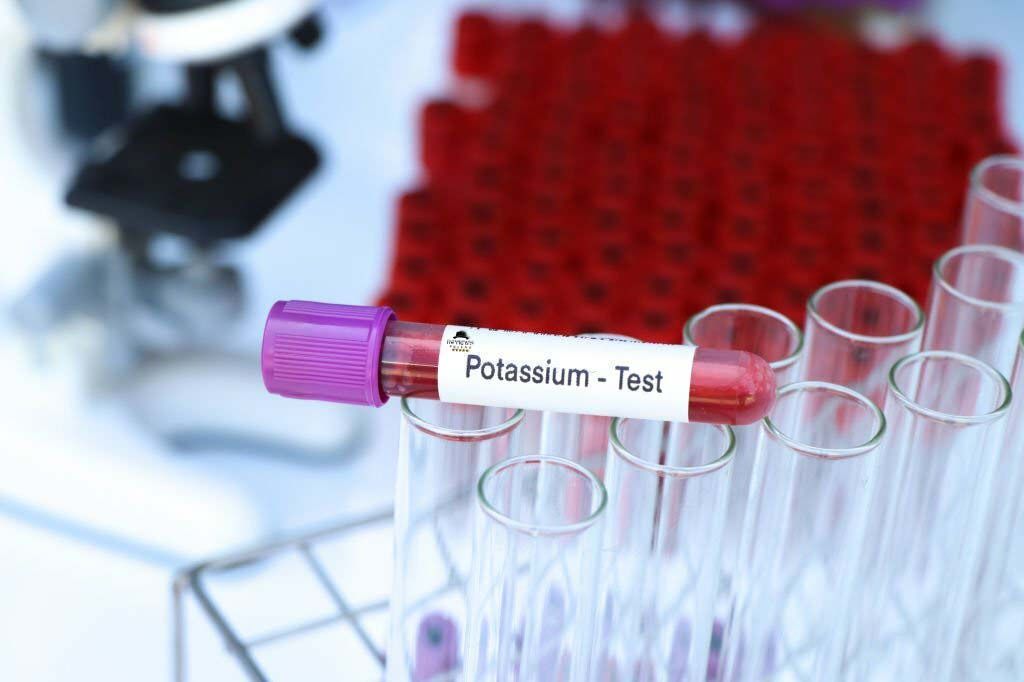This article is reviewed, corrected, and approved by: Julia Weiss CNP| RN | MPH
Low potassium, which is also called hypokalemia in medical terms, refers to a condition where there is an insufficient amount of potassium in the bloodstream. A potassium deficiency causes this.
I'll take a closer look at the connection between hypokalemia and cancer. Also, I’ll shed light on the question- “Is low potassium a sign of cancer?”. Moreover, I will discuss how these two medical conditions affect each other.
What Exactly Is Hypokalemia?
In the medical world, there is a condition called hypokalemia, in which the blood potassium level is low. Now, potassium is super important because it helps your body do a bunch of important stuff. Like keeping your nerves and muscles working right, making sure your heart beats in rhythm, and keeping you healthy.
What Are the Low Potassium Symptoms?

Symptoms of hypokalemia can vary in severity. Including
- Muscle weakness
- Fatigue
- Irregular heart rhythms
- Cramps
- Constipation.
These conditions can cause paralysis and life-threatening arrhythmias.
Low Potassium Causes
There are many things that cause hypokalemia. Such as insufficient dietary intake, medications, excessive sweating, and certain medical conditions.
This symptom may indicate the existence of underlying medical conditions. You can name gastrointestinal disorders and kidney problems.
- Inadequate Dietary Intake: Getting too little potassium from fruits, veggies, and certain proteins.
- Medications: Certain types of medications, such as diuretics (also known as water pills). Increase the loss of potassium in the body, resulting in low potassium levels.
- Gastrointestinal Disorders: Conditions that cause excessive vomiting, diarrhea, or laxative abuse can lead to potassium loss.
- Kidney Disorders: The body may lose excessive amounts of potassium as a result of kidney problems. Resulting in excessive urinary excretion.
- Hyperaldosteronism: This condition involves an overproduction of the hormone aldosterone. Which can lead to potassium depletion.
- Magnesium Deficiency: Low magnesium levels can affect potassium regulation in the body. To solve this, magnesium supplements can help. To read more, read here: 3 Top Magnesium Supplements For 2023
- Alcohol and Drug Abuse: Excessive alcohol consumption or drug use can lead to. As they can affect kidney function and nutrient absorption.
- Chronic Conditions: Conditions like Cushing's syndrome and Bartter syndrome. And certain genetic disorders can affect potassium balance.
- Severe Sweating: Excessive sweating in hot weather can lead to potassium loss.
- Diabetic Ketoacidosis: In uncontrolled diabetes, the body can produce excess ketones. Which can lead to potassium loss.
Hypokalemia: Is Low Potassium A Sign of Cancer?

The connection between hypokalemia and cancer is complex. Here's what the science says about potassium levels and cancer.
The Link Between Hypokalemia and Cancer
Cancer cells, when they die, can release potassium into the bloodstream. This potassium may attract and activate immune cells. Potentially helping the body fight against cancer.
Yet, cancer can also lead to hypokalemia through several mechanisms:
- Competition for potassium: Cancer cells can compete with healthy cells for available potassium. Causing a decrease in potassium levels in the bloodstream.
- Gastrointestinal symptoms: Some cancers can induce symptoms like diarrhea and vomiting. Which can lead to potassium loss, exacerbating hypokalemia icd 10.
- Cancer treatments: Therapies like chemotherapy and radiation can also cause hypokalemia as a side effect. Further complicating the relationship between cancer and low potassium levels.
Is Hypokalemia A Symptom of Cancer?
Here are some crucial factors that show low level of potassium might be linked to cancer
- Icd 10 hypokalemia is more commonly associated with advanced stages of cancer. Rather than early-stage cancer.
- Lung cancer, leukemia, and Lymphoma are more likely to be linked with hypokalemia.
- Patients diagnosed with cancer who suffer from malnutrition are susceptible to a heightened risk of low potassium development.
- Individuals with cancer who have other medical conditions. Such as kidney or liver disease, are also at a higher risk of developing hypokalemia.
Diagnosing Hypokalemia and Cancer

To diagnose ICD 10 code hypokalemia, a simple blood test can be conducted to measure potassium levels in the bloodstream. If cancer is suspected, doctors may order imaging tests like CT scans, MRIs, or hypokalemia ECG. Or perform a biopsy to confirm the diagnosis.
Is Low Potassium Associated with Any Side Effects?
Here are common side effects of low potassium (hypokalemia) are
- Muscle weakness or cramps
- Fatigue or tiredness
- Irregular heartbeat or palpitations
- Constipation
- Nausea
- Vomiting
- Abdominal cramping
- Tingling or numbness
- Muscle aches or stiffness
- Increased blood pressure
Treating Low Potassium and Cancer
A potassium supplement or diet may do the trick in mild cases. In more severe cases, intravenous potassium replacement may be necessary. To restore normal potassium levels quickly.
If low potassium levels are linked to cancer, a holistic plan of action will be created to manage and cure both ailments efficiently. Treatment usually involves the use of surgical, chemotherapeutic, or radiation therapy methods.
Conclusion
Is low potassium a sign of cancer? Yes, Hypokalemia can indeed be a sign of cancer. However, it's important to remember that low potassium levels can also result from various other causes.
If you or someone you know is experiencing symptoms of hypokalemia and there is a concern about cancer. It is essential to consult a healthcare professional. Hypokalemia and underlying cancer should be diagnosed and treated early.
What is Hypokalemia?
Hypokalemia is a medical condition characterized by low levels of potassium in the bloodstream. Potassium is essential for nerve and muscle function, maintaining heart rhythm, and overall health.
Low Potassium Symptoms:
Symptoms of hypokalemia can range from mild to severe and may include:
- Muscle weakness
- Fatigue
- Irregular heart rhythms
- Cramps
- Constipation
- Severe cases can lead to paralysis and life-threatening arrhythmias.
Causes of Hypokalemia:
Various factors can lead to hypokalemia, including:
- Inadequate dietary intake of potassium
- Certain medications (such as diuretics)
- Gastrointestinal disorders causing excessive vomiting or diarrhea
- Kidney disorders
- Hyperaldosteronism
- Magnesium deficiency
- Alcohol and drug abuse
- Chronic conditions like Cushing's syndrome and Bartter syndrome
- Severe sweating
- Diabetic ketoacidosis
Hypokalemia and Cancer:
The relationship between hypokalemia and cancer is complex. While cancer cells can release potassium upon death, potentially aiding the immune system, cancer can also lead to hypokalemia through mechanisms like potassium competition, gastrointestinal symptoms, and cancer treatments (chemotherapy and radiation).
Is Hypokalemia a Symptom of Cancer?
Hypokalemia may be more commonly associated with advanced stages of cancer rather than early stages. Lung cancer, leukemia, and lymphoma are more likely to be linked with hypokalemia. Patients with malnutrition and co-existing medical conditions are also at higher risk.
Diagnosing Hypokalemia and Cancer:
A blood test measures potassium levels for hypokalemia diagnosis. For suspected cancer, imaging tests (CT scans, MRIs), ECGs, or biopsies may be conducted.
Side Effects of Low Potassium:
Common side effects of hypokalemia include muscle weakness, fatigue, irregular heartbeat, constipation, nausea, and more.


